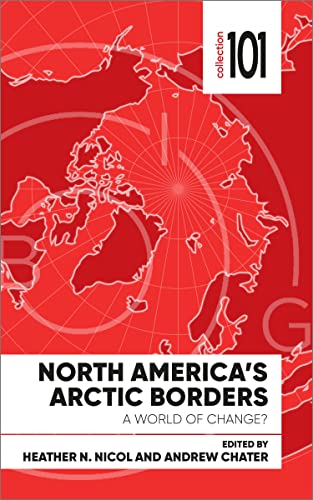
Inhaltsangabe
Although part of a broader circumpolar world, North America’s Arctic and sub-Arctic borders--and the establishment of new boundaries in the wake of significant, and regionally unique, change--are increasingly relevant in the broader, global world.
Indeed, the Arctic reality has been dramatically reshaped by new territorial configurations and comprehensive land claims; increasing flows of international investment and trade focused upon resource industries and hydrocarbon extraction; the growing importance and role of sub-national entities, organizations, and Indigenous governments; shifting geopolitical interests; and existential challenges created by climate change and environmental security.
This book demonstrates how North America’s Arctic borders are being reshaped by globalization even as these borders are adjusting to new internal pressures such as devolution and the rise of sub-national territorial interests.
Die Inhaltsangabe kann sich auf eine andere Ausgabe dieses Titels beziehen.
Über die Autorin bzw. den Autor
Andrew Chater is Professor of Humanities (limited term) at Brescia University College. He is a fellow at Polar Research and Policy Initiative. He was the 2019–2020 North American and Arctic Defense and Security Network (NAADSN) Postdoctoral Fellow, and the 2018–2019 Fulbright Visiting Research Chair in Arctic Studies at the University of Washington.
Auszug. © Genehmigter Nachdruck. Alle Rechte vorbehalten.
“In some ways it is clear that Northern bordersin Canada are exceptional. There are issues of climate change and environmentaldisruptions, geopolitics, international law, colonial legacies, economic developmentand governance that are unique. All of these influence the way in which bordersare both imagined and managed.”
“Today, the tide has turned in terms of thegrowing political clout of Indigenous organizations. In the North AmericanNorth, as elsewhere in the circumpolar region, many Indigenous peoples havebecome actors on a larger stage, and are being remapped onto larger nationaland international organizations levels of consultation, discussion and action.”
“Canadian and American security agencies seekgreater levels of transnational cooperation in the North, precisely because ofthe cross-border nature of 21st century security threats triggered by largeexistential threats such as environmental instability related to climate change(Kee 2019, Kee et al. 2019). Climate change, melting ice, and increasedshipping and maritime activities have thus contributed to speculation aboutfuture tensions and territorial conflict in the North, as well as highlightedthe need for assurances of cooperation.”
„Über diesen Titel“ kann sich auf eine andere Ausgabe dieses Titels beziehen.
Suchergebnisse für North America’s Arctic Borders: A World of Change?...
North America's Arctic Borders: A World of Change (Collection 101)
Anbieter: Kennys Bookstore, Olney, MD, USA
Zustand: New. 2021. New. Hardcover. . . . . . Books ship from the US and Ireland. Artikel-Nr. V9780776629599
Neu kaufen
Anzahl: Mehr als 20 verfügbar
Arctic Borders in Globalization: North America
Anbieter: moluna, Greven, Deutschland
Zustand: New. This book examines North America s Arctic andsub-Arctic borders and their changing relevance in a global world. Its point isthat North America s Arctic borders are being dramatically reshaped by globalizationin various forms, at the same time that they are . Artikel-Nr. 441352979
Neu kaufen
Anzahl: Mehr als 20 verfügbar
